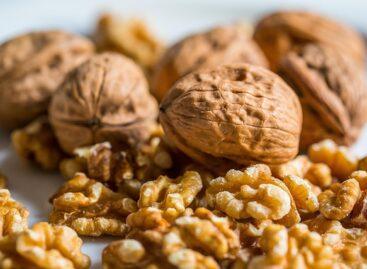Drought mitigation measures reduced crop losses
Although drought seriously threatened Hungarian agriculture this year, drought mitigation measures ultimately significantly reduced crop losses, said the State Secretary for Agriculture of the Ministry of Agriculture (AM) at a press conference following the Harvest Coordination Committee meeting in Budapest on Thursday.

(Photo: AM/István Fekete)
Imre Hubai stated that, based on the harvest data, the crop volume required for domestic supply is available, and there will also be a commodity base for export. According to him, drought protection and water retention measures, rainfall conservation, and the encouragement of less-rotated soil cultivation all contributed to the fact that the summer weather was much less bearable for Hungarian agriculture than during the great drought of 2022. Drought damage affected only about a third of the area at that time this year, with reports received on 556 thousand hectares. The drought primarily damaged sunflower, corn and soybean plantations, but the water sector helped to retain more than 1 billion cubic meters of water, and the amount of expenses to mitigate the consequences of the drought exceeded 20 billion forints. Of this, 4.7 billion forints went to immediate drought protection measures, in addition, the government took over more than 10 billion forints of water supply costs borne by farmers.
The state secretary reported that the previously around 1 million hectares of corn cultivation area has decreased to 750 thousand hectares
Despite this, producers can harvest 1 million tons more than 3 years ago, almost 3.8 million tons, and the work is nearing its end. The area of sunflower has increased, and is expected to be even larger next year, because it still yields more reliably than corn, and this year’s quantity may be around 1.2 million tons. The current price level of corn is slightly below expectations, but that of sunflower is higher. He added that the autumn sowing work is progressing well, and precipitation may help germination. Demand for grain is not expected to change significantly next year, but producers can hope for a stable yield.
Tamás Petőházi, president of the National Association of Grain Growers, believes that farmers may have another difficult year
However, Hungarian agriculture has “taken up the gauntlet” and is considering significant transformations in response to the unfavorable processes. At the press conference, he pointed out that a solution could be to transform the crop structure, for example, the decline in corn will open up space for the cultivation of other autumn crops on 200-300 thousand hectares, such as poppy, sorghum, and autumn peas. According to his experience, Hungarian producers do not give up, they are always open to new opportunities, but the transformation of demand can also help them survive. For example, the domestic milling industry can buy more Hungarian grain instead of Ukrainian this season, in quantities exceeding 1 million tons – he indicated. The feed industry can buy even more, up to one and a half million tons of wheat, i.e. almost double the previous quantity. According to him, the transformation processes that are starting now may take years, but the results so far prove that arable crop production is viable, can find and master the solutions that mean survival. Tamás Petőházi added that the sowing of winter cereals has been completed on 1.6 million hectares, and wheat and barley are sprouting nicely. Based on the feedback from producers, Imre Hubai believes that the production of new varieties that adapt to weather changes and soil conditions can also help a lot, so seed production may play an important role in the coming period. He also emphasized that world market processes continue to provide better opportunities for quality production, so we need to switch to this from quantitative aspects as much as possible.
AM/MTI
Related news
Walnuts are available at incredible prices
🎧 Hallgasd a cikket: Lejátszás Szünet Folytatás Leállítás Nyelv: Auto…
Read more >The Ministry of Agriculture pays special attention to supporting the horticultural sector
🎧 Hallgasd a cikket: Lejátszás Szünet Folytatás Leállítás Nyelv: Auto…
Read more >Related news
PwC Global CEO Survey: CEO confidence at a five-year low
🎧 Hallgasd a cikket: Lejátszás Szünet Folytatás Leállítás Nyelv: Auto…
Read more >It isn’t about Rossmann this time
🎧 Hallgasd a cikket: Lejátszás Szünet Folytatás Leállítás Nyelv: Auto…
Read more >








